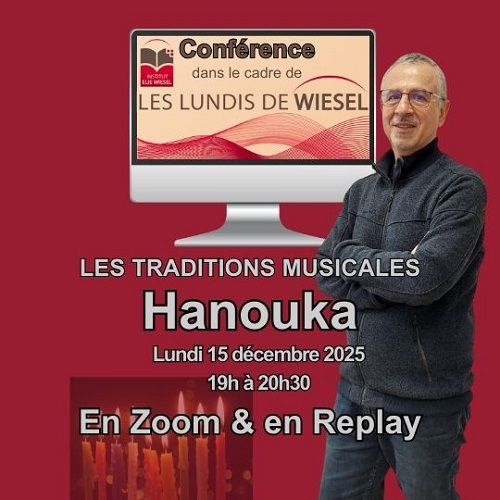
A radio program from the European Institute of Jewish Music, hosted by Hervé Roten.
MUSIQUES JUIVES D’HIER ET D’AUJOURD’HUI – TUESDAY FEBRUARY 16, 2016, JUDAÏQUES FM (94.8), 21H05. Radio program in French
In the 1930’s, people around the Mediterranean sea got interested in Oriental music. For the historian Benjamin Stora, this interest is the consequence of an attraction for exotism, following the colonial exposition of 1931-1932. To satisfy this interest, a new generation of singers appeared, creating songs that mix French and Arabic, with latin rythms (rumba, cha-cha-cha, tango…) or covers from French variety songs.
Therefore, by the end of the 1930’s, some of these songs – called Franco-Arabes, Francarabes or Oriental – were recorded by music companies in North Africa (Lili Labassi, Luisa Tounsia…). At the same time, artists – such as Salim Hallali – performed in Oriental cabarets (El Djezaïr) that emerged in Paris, in particular around the Latin Quarter. After the war, new Oriental cabarets opened rue de la Huchette (Les nuits du Liban, Le Tam-tam…) and also in Montmartre (Au Soleil d’Algérie).
From the 1950’s on, Paris was an essential stop for North African artists who recorded their biggest hits at Pathé Marconi (L’Orientale by Line Monty, song written by Youssef Hagège that will be sung as a cover by Enrico Macias 10 years after) or at Dounia, a music label created by singer and producer Kahlaoui el Tounsi.
With the decolonization process, and the independence of Algeria, many North African Jewish artists – such as Blond-Blond, Salim Halali, José de Suza, Lili Boniche, Maurice el Médioni, Enrico Macias… – settled in France and perpetuated the French Arabic song repertoire, particularly among nostalgic « Pieds-Noirs ».
The latest publication of the magazine Je Chante ! (n°12 January 2016) in which is included an important chapter on French Arabic song repertoire, is an opportunity to know better this form of artistic expression, from which we measure now the importance. Raoul Bellaïche, chief redactor of this magazine, will be the guest of these two radio programs, in which we will hear legendary songs, such as L’Orientale, Chérie combien je t’aime, Ma guitare et mon pays, El Andaloussia, Les merguez, Alger Alger, Ya oummi…
Take a look at the magazine Je Chante ! n°12.
Listen to a selection of French Arab songs from EIJM collections
Listen to the second part of the show on the French-Arabic song repertoire.

Ethnomusicologist, he quickly developed an interest in the safeguard and digitization of archives, subjects he taught for several years in Reims and Marne-La-Vallée universities.
Author of many articles, books and recordings related to Jewish music, producer of radio programs, Hervé Roten is recognized today as one of the best specialists of Jewish music in the world.




